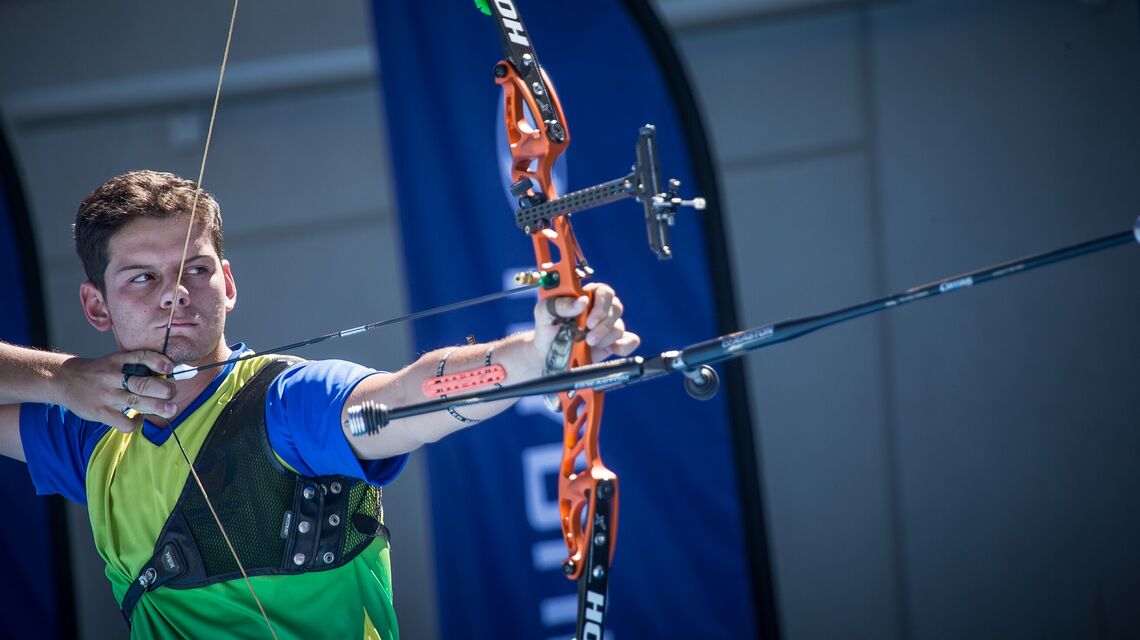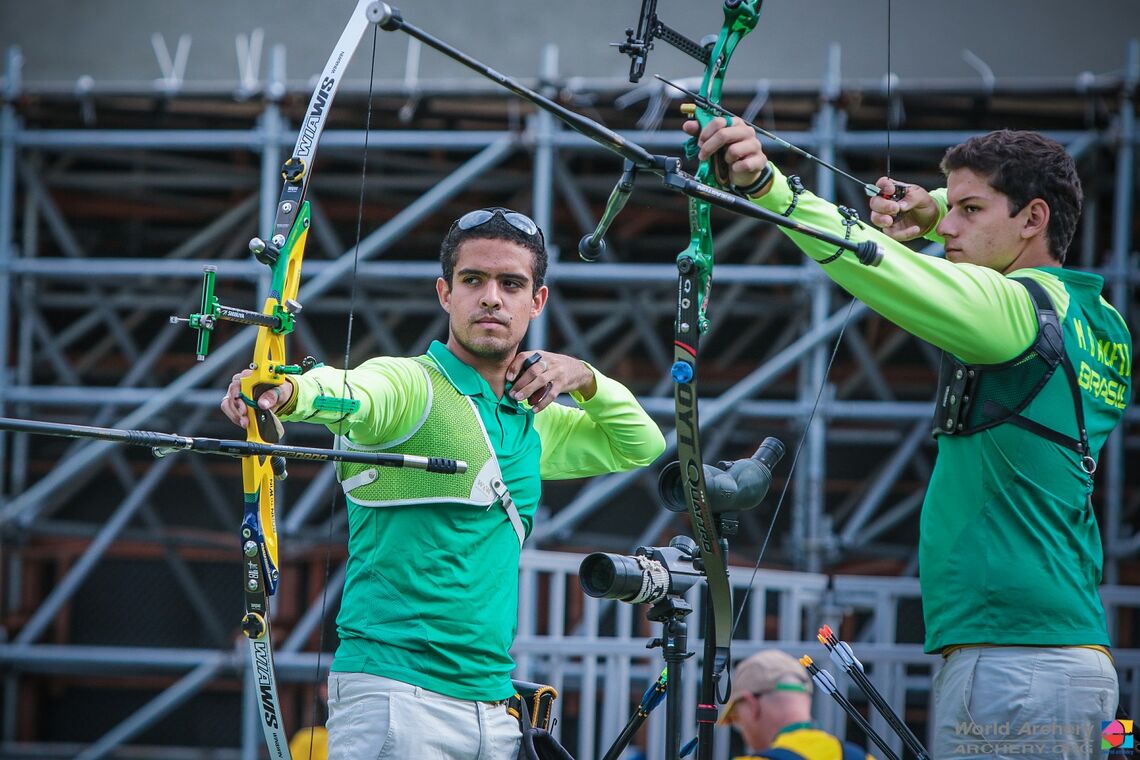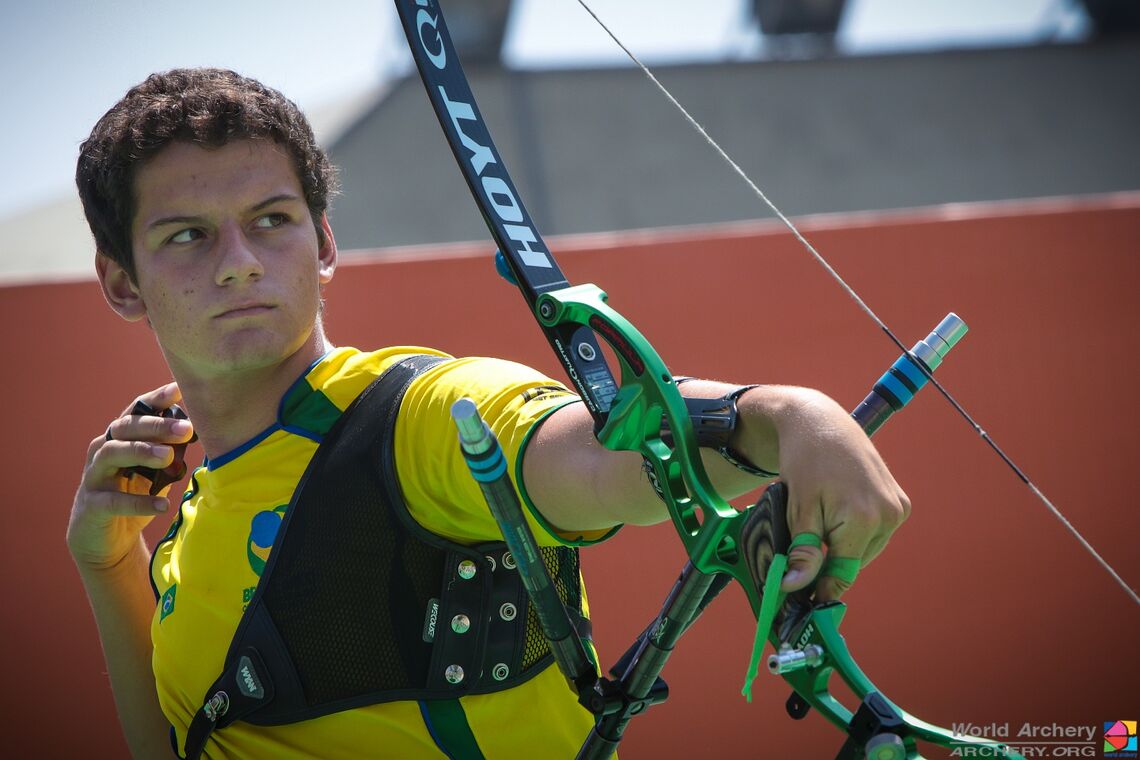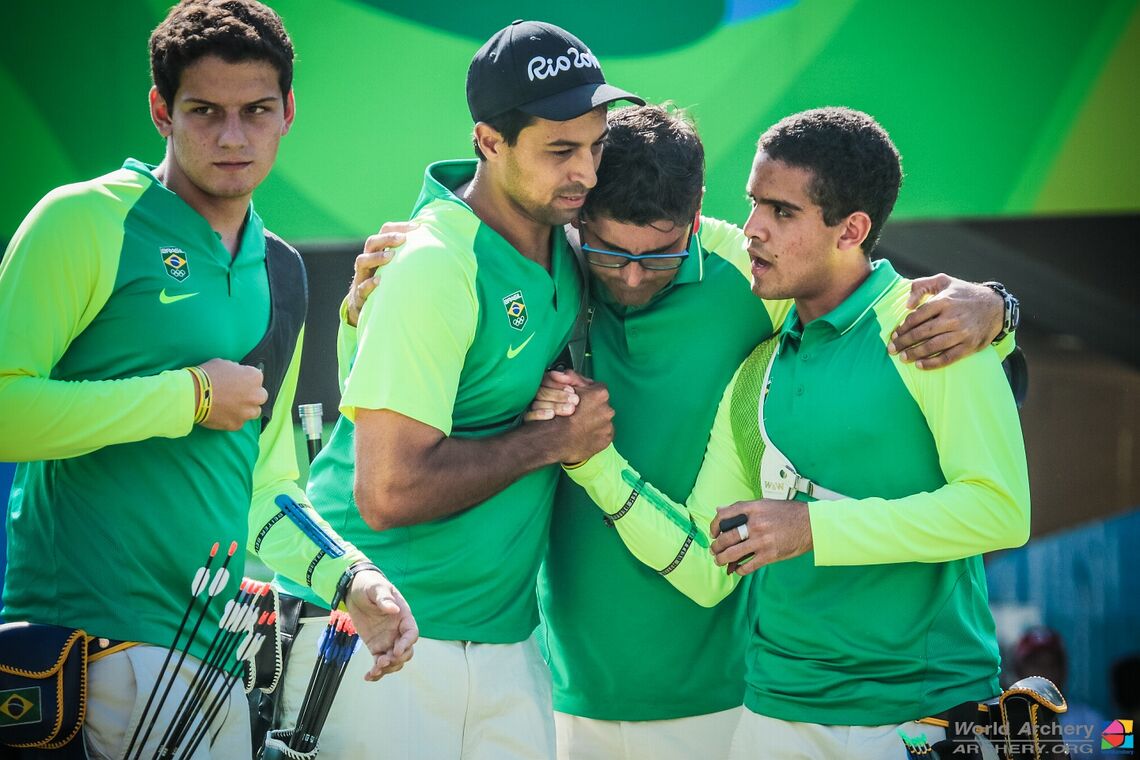Marcus D’Almeida eyes return to prominence after Olympic hangover

“How many 16–year–olds have you seen in your long, long career here in this sport that could do what Marcus D’Almeida is doing,” asked Carl Arky from his commentary perch at the 2014 Archery World Cup Final.
The unflappable phenom from Brazil had already dazzled his way to the gold medal match in Lausanne by the time he met top-ranked US archer Brady Ellison in the final.
The youngest qualifier in the history of the event, D’Almeida ascended to the championship match with ease, sweeping his first two opponents of the day before lining up against a competitor almost a full decade his senior.
By then, the young Brazilian archer’s monumental progression had firmly established him as a star in the making. Not even a dramatic loss to Ellison in a shoot-off could dampen his spirits. After entering the tournament as an intriguing curiosity, he left Switzerland as the indisputable darling of the archery community.
“Write that name down. Mark it down. Keep an eye on him. Follow him,” Arky said of D’Almeida, who was one month removed from another major runner-up finish at the Youth Olympic Games in Nanjing.”
“You get the feeling that he’s going to be a big star in Rio in two years when he’ll be 18 years old and have even more experience, more training, more practice.”
Arky wasn’t alone in his thinking. Media outlets were enraptured by D’Almeida’s 2014 season and what it portended. Labels like ‘prodigy’, ‘megastar’, and ‘medal favourite’ were thrown around with reckless abandon as if a podium appearance in Rio was preordained.
The story was too good to ignore: a teenage virtuoso making his Olympic debut just miles from his birthplace.
D’Almeida carried the Olympic torch in Sao Paulo, accepting the honour with hopes of growing his sport in a football-obsessed country. His appointed nickname, ‘Archery’s Neymar’, only made the expectations heading into the 2016 Olympic Games all the more overwhelming.
“Before Rio, there was a lot of pressure,” said D’Almeida recently by phone. “I was so young, and the Olympics are in Brazil and in my city because I live in Rio. Everybody was saying, ‘come on, Marcus, you can do it’.”
His voice trailed off. A first-round exit wasn’t what anyone expected. The Olympics ended without a Brazilian on the podium in archery, and D’Almeida returned home defeated, unsure of what would come next.
“There’s a bit of a hangover after the Olympics,” Brazilian teammate Bernardo Oliveira said. “We spent so many years talking only about Rio, and then all of it vanished. It felt like the world was going to end – like there wasn’t anything else to look forward to.”

For D’Almeida, the ensuing years have been spent trying to recapture the magic that defined the formative stages of his career. Success hasn’t eluded him entirely – he paired with para archer Juan Urrejola to win a special mixed team event at the Wuhan 2019 World Military Games – but it hasn’t come as easily as before.
Results only tell part of the story.
While Oliveira expressed little doubt when asked whether D’Almeida is capable of reaching the heights of six years ago, he has noticed a pattern in his teammate’s shooting that could speak to a larger issue at play.
“At the beginning, he really showed everybody what, to me, is one of his strongest assets, which is his mental game,” said Oliveira. “He can be so cool under any circumstances. That’s what he did so masterfully in 2014.”
D’Almeida rarely impressed during qualification rounds when he was younger, Oliveira explained. It was during matches when he thrived – like when he won three gold medals at the 2014 South American Games, breaking all of the event records for the 1440 Round, including Oliveira’s, in the process.
“Now, it’s kind of inverted,” Oliveira said. “Because he was so young, he had absolutely nothing to lose. But as he grew older, I think he started to worry a little bit more. That became a difficulty for him, but I believe he is on his way to overcoming it.”

There has also been some bad fortune along the way. The 2019 Archery World Cup stage in Medellin saw Marcus get off to a promising start before he ran into Athens 2004 Olympic gold medallist Marco Galiazzo in the third round, when the veteran Italian got the best of him, winning 6–4.
It wasn’t that D’Almeida didn’t shoot well. Galiazzo just shot better.
“If you really want to be in the top eight in the world, you need to shoot better than he’s been shooting in the matches,” said Oliveira. “And he knows that. It’s just a question of fixing a couple of details, and then he’s going to unlock that potential.”
Oliveira recalled a moment after that match: a dejected D’Almeida sat facing his bag, his head held low, staring at the space between his feet. All of his dreams of a medal had vanished in a matter of minutes. Brady Ellison approached D’Almeida with some words of encouragement.
No stranger to unexpected early exits, Ellison advised D’Almeida to stay strong. He knew better than most how disappointing a result like that could be.
“It reminded me a lot of the Olympics. People have lots of expectation simply because of the bigger stage, and he felt it more than the rest of us, for sure,” said Oliveira.

“We received a lot of attention. We had so many TV obligations, and he had more than everybody else. So many people believed it would be a piece of cake for him to win a medal. But it’s not as easy as it sounds.”
Sixty-four men and women compete in the archery competition at the Games. There is only one individual podium. Sixty-one archers finish empty-handed.
The hope is that D’Almeida, now 22, can put it all together under different circumstances next summer in Tokyo. He is still plenty young – when D’Almeida steps onto the line in Japan, he will be younger than the age that Oliveira was at his first Olympics – and the spotlight won’t be as bright as it was in Rio.
There’s still time for him to capture the magic that took the world by storm six years ago.
“I have more experience now, but I have to work more,” said Marcus. “If I want to win a gold medal, this is what it takes.”











